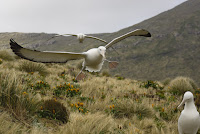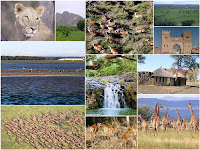There's more truth to the adage "Elephants never forget" than you might realize
Elephants are incredible creatures. The largest land mammals on earth, they show a wide range of behavioral and emotional patterns in their up-to-60-year lifespans. They grieve over the bodies of dead herd members, and can even recognize their own reflections in a mirror. And, of course, there's that old saying: "Elephants never forget." While it may be an exaggeration, there's more truth to the adage than you might
realize.
In the wild, an elephant’s memory is key to its survival—and its herd’s. Each herd has a matriarchal structure, with one older female in charge. When younger males in the group reach sexual maturity—usually around 14 years of age—they leave the herd to roam solo or occasionally form groups with other males. Proof of elephants' long memories lies in their behavior: When confronted with an unfamiliar elephant, matriarchs will huddle in defensive positions because they realize that those elephants could pose a threat to the herd's safety.
Science has also proven that elephants have great memories. In 2007, researchers at the University of Saint Andrews in Scotland placed urine samples in front of female elephants at the Amboseli National Park in Kenya; according to Scientific American, the elephants "acted up" when they smelled urine that didn't come from an elephant in their herd. The researchers concluded that elephants can recognize and track as many as 30 of their companions. "Imagine taking your family to a crowded department store and the Christmas sales are on," said psychologist Richard Byrne, one of the scientists who participated in the study. "What a job to keep track of where four or five family members are. These elephants are doing it with 30 traveling-mates." Elephants “almost certainly know every [member] in their group,” Byrne said, and exhibit cognitive abilities “far in advance of anything other animals have been shown to have.”
Elephants don't just remember companions they've spent long stretches of time with, either. A pair of captive elephants have shown that these animals can recognize other friendly elephants even when they had only spent short periods of time together. At The Elephant Sanctuary—a non-profit organization based in Hohenwald, Tennessee, that is the U.S.'s largest natural-habitat refuge developed specifically for endangered elephants—in 1999, an elephant named Jenny became very animated when a new elephant named Shirley arrived. After looking into the animals’ backgrounds, workers at the Sanctuary; found that the two had performed with the same circus for only a few months—22 years earlier.
Their superb memories help elephants stay alive in ways that go beyond just recognizing threats. Matt Lewis, a Senior Program Officer with the World Wildlife Fund’s Species Conservation Program, tells mental_floss that one of the best examples of elephant cognition “comes from desert-adapted elephants, where the matriarchs remember where reliable water can be found and are able to guide their herds to water over very long distances, and over the span of many years. This is a pretty clear indication that elephants have a great ability to remember details about their spatial environment for a very long time.” Studies have also shown matriarchs who have lived through dry spells before will lead their herds to more fertile land, while younger matriarchs who haven't experienced a drought are more likely to stay put.
The elephants are able to use their whopping 10.5-pound brains to encode identification and survival details, imprinting the key data to their memory to be recalled later. But an elephant's amazing memory comes only with age and experience—and older, larger elephants are often a target of hunters. “The tragedy," says Lewis, "is that when one of these [elephants] is lost to poaching, the information dies with her,” leaving the rest of the herd at a disadvantage—and having severe consequences for the species as a whole."
In the wild, an elephant’s memory is key to its survival—and its herd’s. Each herd has a matriarchal structure, with one older female in charge. When younger males in the group reach sexual maturity—usually around 14 years of age—they leave the herd to roam solo or occasionally form groups with other males. Proof of elephants' long memories lies in their behavior: When confronted with an unfamiliar elephant, matriarchs will huddle in defensive positions because they realize that those elephants could pose a threat to the herd's safety.
Science has also proven that elephants have great memories. In 2007, researchers at the University of Saint Andrews in Scotland placed urine samples in front of female elephants at the Amboseli National Park in Kenya; according to Scientific American, the elephants "acted up" when they smelled urine that didn't come from an elephant in their herd. The researchers concluded that elephants can recognize and track as many as 30 of their companions. "Imagine taking your family to a crowded department store and the Christmas sales are on," said psychologist Richard Byrne, one of the scientists who participated in the study. "What a job to keep track of where four or five family members are. These elephants are doing it with 30 traveling-mates." Elephants “almost certainly know every [member] in their group,” Byrne said, and exhibit cognitive abilities “far in advance of anything other animals have been shown to have.”
Elephants don't just remember companions they've spent long stretches of time with, either. A pair of captive elephants have shown that these animals can recognize other friendly elephants even when they had only spent short periods of time together. At The Elephant Sanctuary—a non-profit organization based in Hohenwald, Tennessee, that is the U.S.'s largest natural-habitat refuge developed specifically for endangered elephants—in 1999, an elephant named Jenny became very animated when a new elephant named Shirley arrived. After looking into the animals’ backgrounds, workers at the Sanctuary; found that the two had performed with the same circus for only a few months—22 years earlier.
Their superb memories help elephants stay alive in ways that go beyond just recognizing threats. Matt Lewis, a Senior Program Officer with the World Wildlife Fund’s Species Conservation Program, tells mental_floss that one of the best examples of elephant cognition “comes from desert-adapted elephants, where the matriarchs remember where reliable water can be found and are able to guide their herds to water over very long distances, and over the span of many years. This is a pretty clear indication that elephants have a great ability to remember details about their spatial environment for a very long time.” Studies have also shown matriarchs who have lived through dry spells before will lead their herds to more fertile land, while younger matriarchs who haven't experienced a drought are more likely to stay put.
The elephants are able to use their whopping 10.5-pound brains to encode identification and survival details, imprinting the key data to their memory to be recalled later. But an elephant's amazing memory comes only with age and experience—and older, larger elephants are often a target of hunters. “The tragedy," says Lewis, "is that when one of these [elephants] is lost to poaching, the information dies with her,” leaving the rest of the herd at a disadvantage—and having severe consequences for the species as a whole."



